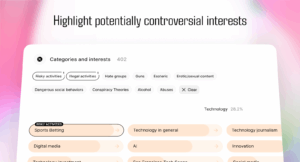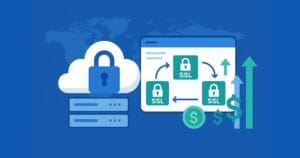Key Takeaways
- Everyone, in both personal and professional life, needs to be accountable for their actions, using various checks such as law, ethical standards, personal values, and societal expectations.
- Personal accountability often takes a backseat due to other responsibilities, but it’s crucial for personal growth and development.
- An effective method to ensure personal accountability is to involve an accountability partner who is honest, focused, respectful, and dedicated to your growth.
- An accountability partner could be a coach, mentor, colleague, or family member, and establishing a mutual accountability partnership can be beneficial for both parties involved.
Everyone needs to be accountable for his or her actions. When it comes to public accountability and the things we do in everyday life, we have the law, ethical standards, our own morals and values, and the expectations of society to use as an accountability check-in.
Plus, we usually have family, peers, and sometimes, even strangers who make us stand up and take responsibility for our actions. It’s not vastly different in business; there’s business law, ethics, company policies and the expectations of our clients and colleagues.
You simply have to be accountable for what you do, or don’t do, when you’re in the public eye, regardless of how large or small the “public” is.
Got Personal Accountability?
 As you set goals and outline plans for moving yourself forward in work and life, accountability is key. You have to hold yourself accountable for the commitments that you make in order to see a positive change.
As you set goals and outline plans for moving yourself forward in work and life, accountability is key. You have to hold yourself accountable for the commitments that you make in order to see a positive change.
The problem is that our own personal accountability frequently comes after everything else on our plates. We live up to our responsibilities with our clients, groups we belong to, volunteer initiatives we’re a part of, our family commitments, and any other aspect of our lives where someone else is counting on us. That doesn’t leave a lot of time for conducting our own personal accountability check-ins.
Call in Reinforcements
The truth is that even though it can seem impossible to carve out enough time to focus on your own personal commitments, it’s necessary if you want to continue to grow and develop. Some of us are better at finding time for personal accountability than others, but almost all of us can benefit from calling in reinforcements.
One of the best ways to increase the odds that you will hold yourself accountable and give your own personal goals the attention they need is by bringing someone else in on the process.
By teaming up, you automatically make your personal accountability public. Now, your own goals and efforts measure closer on the priority scale to the rest because you have an accountability partner expecting action from you. It’s not so easy to let your responsibilities slip when you have someone who will call you on it.
Accountability Partner Options
Your best match for an accountability partner is someone who is willing to make a commitment to support you in your growth and development. This person should understand where you are currently, where you are aiming to go, what resources you have available to help you get there, and when you intend to hit the target.
A good accountability partner is someone who is honest, focused, respectful and dedicated. Your partner could be a coach or mentor, a colleague, a collaboration partner, or even a family member. Make sure you respect the person who will be holding you accountable so you can take and apply their constructive criticism.
For a mutually beneficial effort, become an accountability partner for him/her. It will be easier for both of you to commit to the process and see it through when you both have so much to gain.
Who’s Your Partner?
Do you have an accountability partner to keep you on track? How do you work together?
Image credit: svilen001
Frequently Asked Questions (FAQs) about Accountability
What does it mean to hold someone accountable?
Holding someone accountable means ensuring that they are answerable for their actions or decisions. It involves setting clear expectations, defining goals, and monitoring progress. When someone is held accountable, they are expected to explain their actions and decisions, especially when the outcomes are not as expected. Accountability is a crucial aspect of personal and professional growth as it promotes responsibility, integrity, and ownership.
How can I hold myself accountable?
Self-accountability involves setting personal goals, tracking progress, and taking responsibility for outcomes. It requires self-discipline, commitment, and honesty. You can hold yourself accountable by setting clear and realistic goals, regularly reviewing your progress, and being honest with yourself about your strengths and weaknesses. It’s also helpful to seek feedback from others and use it to improve.
How can I hold others accountable?
Holding others accountable involves setting clear expectations, providing feedback, and following up on progress. It’s important to communicate effectively, ensuring that the person understands what is expected of them. Regular check-ins and feedback sessions can help keep them on track. Remember, accountability is not about punishment, but about helping others grow and achieve their goals.
What is the importance of accountability in a team?
Accountability in a team ensures that all members are responsible for their actions and decisions. It promotes trust, improves performance, and fosters a culture of ownership and commitment. When team members are held accountable, they are more likely to take initiative, work collaboratively, and strive for excellence.
How can I encourage accountability in my team?
Encouraging accountability in a team involves setting clear expectations, providing regular feedback, and recognizing achievements. It’s important to create a supportive environment where team members feel comfortable taking risks and making mistakes. Regular team meetings, one-on-one check-ins, and open communication channels can help foster accountability.
What are the challenges of holding someone accountable?
Holding someone accountable can be challenging due to factors such as resistance to feedback, lack of clarity in expectations, and fear of conflict. It requires effective communication, patience, and empathy. It’s important to approach accountability with a focus on growth and improvement, rather than blame and punishment.
How can I overcome the challenges of holding someone accountable?
Overcoming the challenges of holding someone accountable involves clear communication, empathy, and patience. It’s important to set clear expectations, provide constructive feedback, and offer support. Remember, the goal of accountability is to help the person grow and improve, not to punish or blame.
What is the role of a mentor in accountability?
A mentor plays a crucial role in accountability by providing guidance, feedback, and support. They can help set goals, track progress, and provide constructive feedback. A mentor can also provide a safe space for discussing challenges and exploring solutions, fostering a culture of accountability and growth.
How can I hold my partner accountable without seeming controlling?
Holding your partner accountable involves open and respectful communication. It’s important to express your expectations clearly and listen to their perspective. Focus on the behavior or action, not the person. Remember, accountability is about growth and improvement, not control or blame.
How can accountability improve my personal life?
Accountability in your personal life can help you achieve your goals, improve your relationships, and foster personal growth. It encourages responsibility, integrity, and self-discipline. By holding yourself accountable, you can become more proactive, make better decisions, and lead a more fulfilling life.
Alyssa Gregory is a digital and content marketer, small business consultant, and the founder of the Small Business Bonfire — a social, educational and collaborative community for entrepreneurs.







